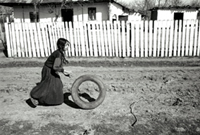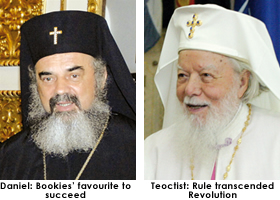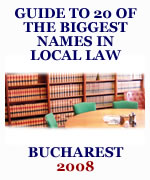Further anti-Rroma race hate killings threathened in Italy
|
 Four Rroma children of Romanian citizenship were killed in a fire in Livorno, Italy, claimed to be the work of an Italian extremist group called the Armed Group for Ethnic Cleansing (GAPE).
Four Rroma children of Romanian citizenship were killed in a fire in Livorno, Italy, claimed to be the work of an Italian extremist group called the Armed Group for Ethnic Cleansing (GAPE).
The group claimed the responsibility of setting up the fire in a letter sent to Italian daily Corriere della Sera.
“Our goal is to eliminate the Rroma ethnics from the Italian soil, because they are the lowest of the low,” the letter explains. “We are fed up with their criminal behaviour.”
This group, previously unknown, gave to all Romanians of Rroma ethnicity in Italy an ultimatum of 20 days to leave the Italian territory and evacuate all their camps across the country.
The group threatened an attack every month in other camps, with more serious consequences than for Livorno.
The fire in which the Romanian children died, started in a makeshift house under a motorway bridge in the industrial area of Livorno.
Authorities are trying to establish if the fire was the result of an accident or a criminal act.
Moldova suspects Romanian diplomat of bribe-taking for visas
Moldova’s Government has claimed a high-ranking official at the Romanian Embassy in Chisinau is suspected of taking bribes to issue visas for Romania to Moldovan citizens.
Moldovan Deputy Interior Minister, Valentin Zubic, refused to name the Romanian official, although he eliminated Ambassador Filip Teodorescu. Romania’s Foreign Minister, Adrian Cioroianu, asked for an investigation, even though there was no official request from the Moldovan authorities.
However, Chisinau has yet to provide proof of the allegations.
Irritated by the proportions of the scandal, President Basescu threatened to give a “very strong answer” to the Moldovan authorities’ accusations.
This follows a diplomatic battle earlier in the year when Chisinau refused to allow Romania to open two more consulates in the Republic of Moldova to process the thousands of visa and citizenship requests from Moldovans.
Basescu added that this is one of the several “aggressions” orchestrated by Chisinau. He also explained that all visas are being analysed and approved by the Romanian Ministry of Foreign Affairs in Bucharest and not the Romanian Embassy in Chisinau.
On the other hand, Prime Minister Calin Popescu Tariceanu did not exclude the possibility that the accusations could be confirmed. “In this case we will take drastic measures against those who broke the law,” Tariceanu said.
The Romanian diplomat in question is allegedly Alexandru Rus, the head of the Consular Section of the Romanian Embassy in Chisinau.
Controversial religious figure could see reformist successor
 Romania’s Orthodox Church is battling over who occupies the seat left vacant as the head of the Church, following the death of Patriarch Teoctist, at 92 this July, from heart failure triggered by prostate surgery.
Romania’s Orthodox Church is battling over who occupies the seat left vacant as the head of the Church, following the death of Patriarch Teoctist, at 92 this July, from heart failure triggered by prostate surgery.
After a 40-day mourning, the Synod of Bishops will make three proposals, and the Church Electoral Board will make a decision that same evening.
Leading Bishops of the various regions are the favourites: Daniel of Moldavia, who holds the interim leadership of the Patriarchy, Teofan of Oltenia, Bartolomeu of Northern Ardeal and Nicolae of Banat.
Experts and those close to the Church leadership say Metropolitan Bishop of Moldavia, Daniel, who is the most influential bishop within the Church, has the best chance to win. Tradition is also on his side. Before 1 March last year, under an unwritten law, the head of the Moldavian Church was elected as the new Patriarch. Teoctist, however, changed this trend when he enforced a set of clear rules on how succession in the church would be passed.
Since then, Daniel has begun searching for support. At the same time, Teofan is ‘on the cards’ because of his close relationship with Teoctist.
Reform versus reaction
Daniel, 55 years old this year, is considered a reformist.
Born into the family of a village teacher, Daniel chose to become a monk in 1987 after he spent more than seven years in Switzerland as a lay theologian. In Moldavia, a poor region, but where the most important centres of monastic life are situated, Daniel created kindergartens, old people’s homes and food canteens. In addition, he helped developing an intensive ecumenical activity with symposiums, seminars and pilgrimages.
Meanwhile, the Bishop of Oltenia, Teofan, is closer to the traditionalist wing of the Orthodox Church and has special interest in matters of the priesthood. Bartolomeu is seen as conservative - with a strong nationalist spirit, less tolerance of other cults and critical of the West.
Teoctist became a monk at 13 and was elected as Patriarch in 1986. He was an alleged collaborator with the Securitate, the former Communist Secret Police, and an enthusiastic public supporter of the Ceausescu regime until the end of the 1989 Revolution. He attracted cricticism for allowing Ceausescu to relocate and destroy churches to make way for the dictator’s insane building projects.
In his favour, it has been argued that he saved the Romanian Orthodox Church from destruction and, in 1999, he helped organise the first visit made by a Catholic Pope to an Orthodox Country since the Great Schism in 1054. At the invitation of Teoctist, Pope John Paul II visited Romania and three years later Teoctist travelled to the Vatican.
The Patriarch wanted to be buried in the Cathedral of the Redemption, which is planned to be constructed opposite the Museum of Contemporary Arts in Palatul Parlamentului, but has no fixed date for construction.
Short News
No confidence in Government proposed
Social Democratic Party (PSD) will launch a censorship motion against the Tariceanu-led Government this Autumn. Analysts say that, if PSD keeps its word and the Democratic Party (PD) and the Liberal Democrat MPs support the motion, Tariceanu’s Government could collapse. In such a case, only President Basescu has the right to designate another Prime Minister to form the Government. PSD leader Mircea Geoana has publicly showed his eagerness to be Prime Minister if the censure motion succeeds, especially as his party is the largest in Parliament. When confronted with the question of whether he would nominate Geoana for PM, Basescu burst into laughter.
Ex-lottery boss to monitor MPs’ wealth
Former member of the National Liberal Party (PNL), 38-year-old Nicu Marcu has been appointed as the first head of the National Integrity Agency (ANI) corruption watchdog. Marcu will lead investigations into the legality of the wealth of politicians and public figures, following a request by the European Commission for ANI establishment. Marcu previously worked as a director in the Ministry of Economy and Finance and was the executive director of the Loteria Romana.
Bribery charges for former Secretary General
Secretary General in the Adrian Nastase Government, Serban Mihailescu, was indicted on suspicions of taking kickbacks in a deal concerning the printing of passports. Mihailescu, nicknamed Miki ‘Spaga’ [The Bribe] for his alleged corrupt role as an intermediary, is accused of breaking public acquisition legislation by doubling the value of a contract signed in 2001 with German-based printers Bundesdruckerei to 73.6 million Euro. Other companies participating in a public tender were disqualified to the benefit of the German company, which pitched the highest figure.
Basescu takes Minister of Health
to court over “mental disease” slur
President Traian Basescu has filed a complaint at the Court House of Bucharest Sector 1 against Minister of Health, Eugen Nicolaescu. The head of state has asked for 15,300 Euro in civil damages, after Nicolaescu said that Traian Basescu “suffers from more illnesses that are in the category of mental diseases.” The court will meet for the first time on 11 September. In his complaint, the President says that he suffered a moral prejudice of having his “honour and reputation harmed because of the culprit’s statements.”
Euro elections to occur at last minute
After huge delays, Romania’s Government has decided to hold European Parliamentary (EP) elections on 25 November. Initially scheduled for 13 May, the elections were postponed to make room for the 19 May impeachment referendum on President Basescu. Commentators argue that this date has been pushed back as far as possible to the deadline of 31 December to ensure that the party of Government, the National Liberal Party (PNL), can increase its poor showing in the polls.
Democrats down, but still dominant
Voters intending to choose the Democratic Party (PD) have dropped below 50 per cent since the May referendum when President Basescu was suspended by the Parliament. The National Liberal Party (PNL) is also witnessing an increase in votes from that period from 8.3 per cent to 13 per cent, according to the latest Insomar survey. 51.9 per cent of Romanians intended to vote for the PD in May 2007 and last month this fell to 47 per cent. The second largest party is the Social Democrats (PSD) which rose from 17 to 18 per cent in the polls. The New Generation Party (PNG) remained at six per cent. A CURS poll gave PD 43 per cent, PSD 19 per cent, PNL 11 per cent and PNG seven per cent.









